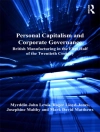Black Bartholomew’s Day explores the religious, political and cultural implications of a collision of highly-charged polemic prompted by the mass ejection of Puritan ministers from the Church of England in 1662.
It is the first in-depth study of this heated exchange, centres centring on the departing ministers‘ farewell sermons. Many of these valedictions, delivered by hundreds of dissenting preachers in the weeks before Bartholomew’s Day, would be illegally printed and widely distributed, provoking a furious response from government officials, magistrates and bishops. Black Bartholomew’s Day re-interprets the political significance of ostensibly moderate Puritan clergy, arguing that their preaching posed a credible threat to the restored political order
This book is aimed at readers interested in historicism, religion, nonconformity, print culture and the political potential of preaching in Restoration England.
Inhaltsverzeichnis
Introduction
1. The context of Restoration nonconformity
2. Preaching, audience and authority
3. Scripture, historicism and the critique of authority
4. The public circulation of the Bartholomean texts
5. Polemical responses to Bartholomean preaching
6. Epilogue
7. Conclusion
Bibliography
Index
Über den Autor
David J. Appleby is Lecturer in Early Modern History at the University of Nottingham












